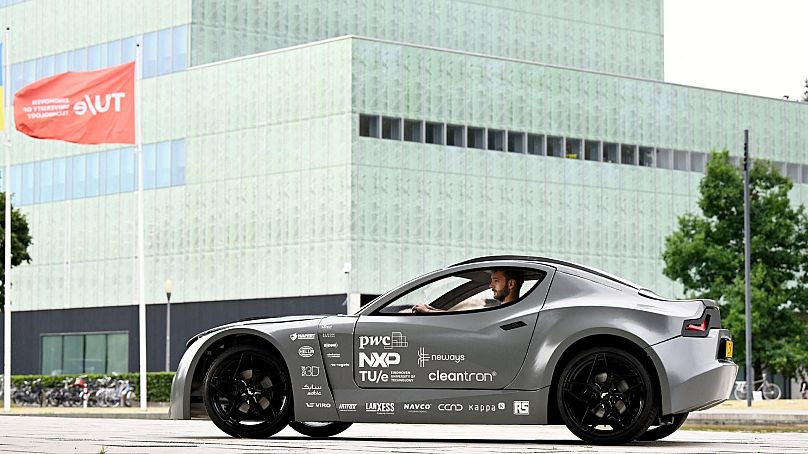The all-electric Zero Emission Mobility (ZEM) car uses carbon capture technology to absorb CO2 as it drives.
Dutch students have invented a zero-emissions car that captures carbon as it drives.
 ADVERTISEMENT
ADVERTISEMENT
 ADVERTISEMENT
ADVERTISEMENT
"This car was made with the goal to minimise the CO2 emitted during the manufacturing phase, the life phase and the end-of-life phase," says Jens Lahaije, a member of the Eindhoven University of Technology team who created the vehicle.
Made mostly from 3D-printed recycled plastics, the sporty all-electric car is powered by a lithium-ion battery pack.
Although EVs emit virtually no CO2 compared with their combustion-engine counterparts, battery cell production is highly polluting. As a result, it can take EVs tens of thousands of kilometres to achieve 'carbon parity' with comparable fossil-fuelled models.
How will the electric car offset pollution?
The students' Zero Emission Mobility (ZEM) car aims to offset this using carbon capture technology.
It features two filters that can capture up to 2 kg of CO2 over 30,000 km of driving, the Eindhoven team estimates. Although this is a small amount - it would take at least 12 cars travelling 30,000 km each to absorb the same amount as the average tree in a year - the students hope to increase the capacity of the filter in coming years.
They imagine a future when filters can be emptied at charging stations.
"Our end goal is to create a more sustainable future," says Lahaije.
The students are showing their vehicle on a US promotional tour to universities and companies from the East Coast to Silicon Valley.











